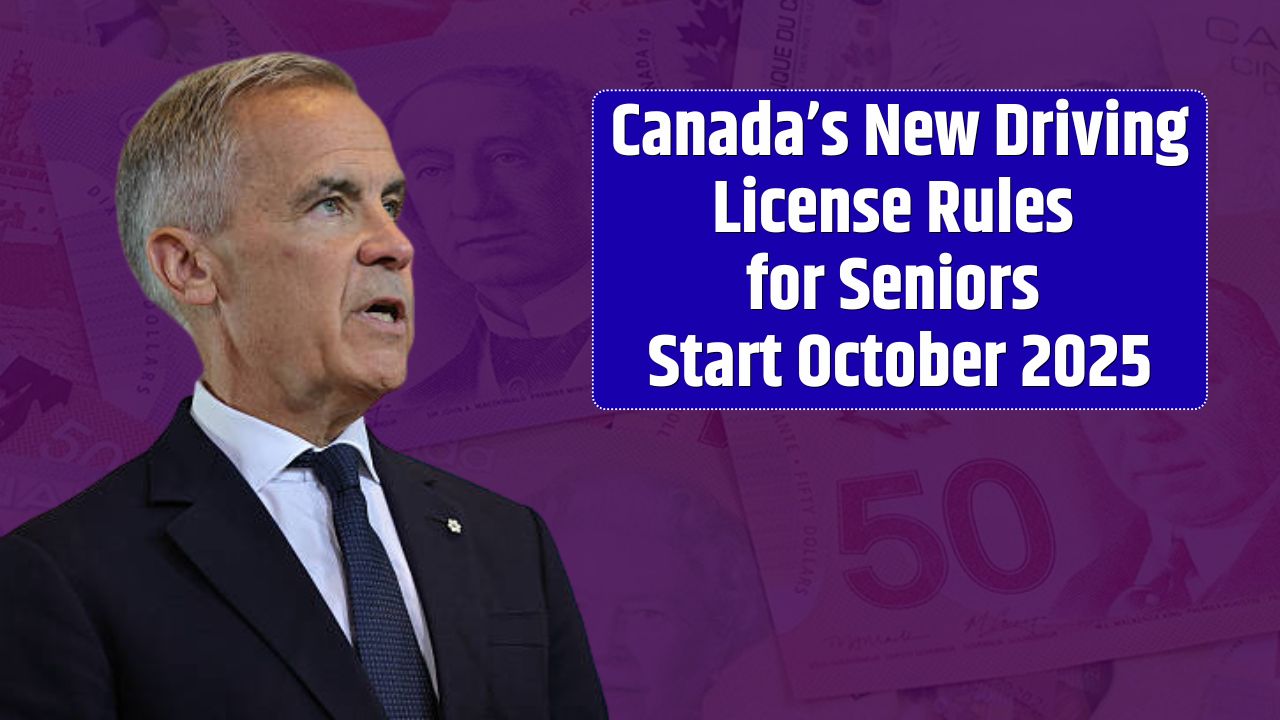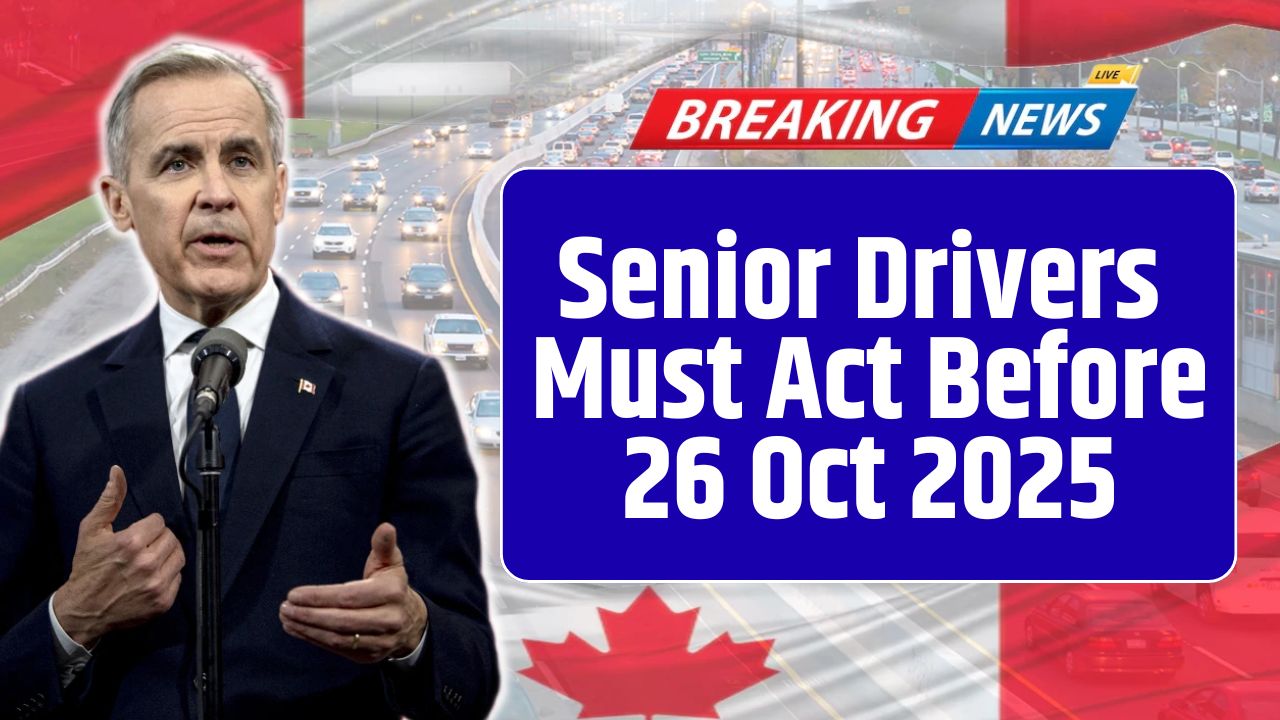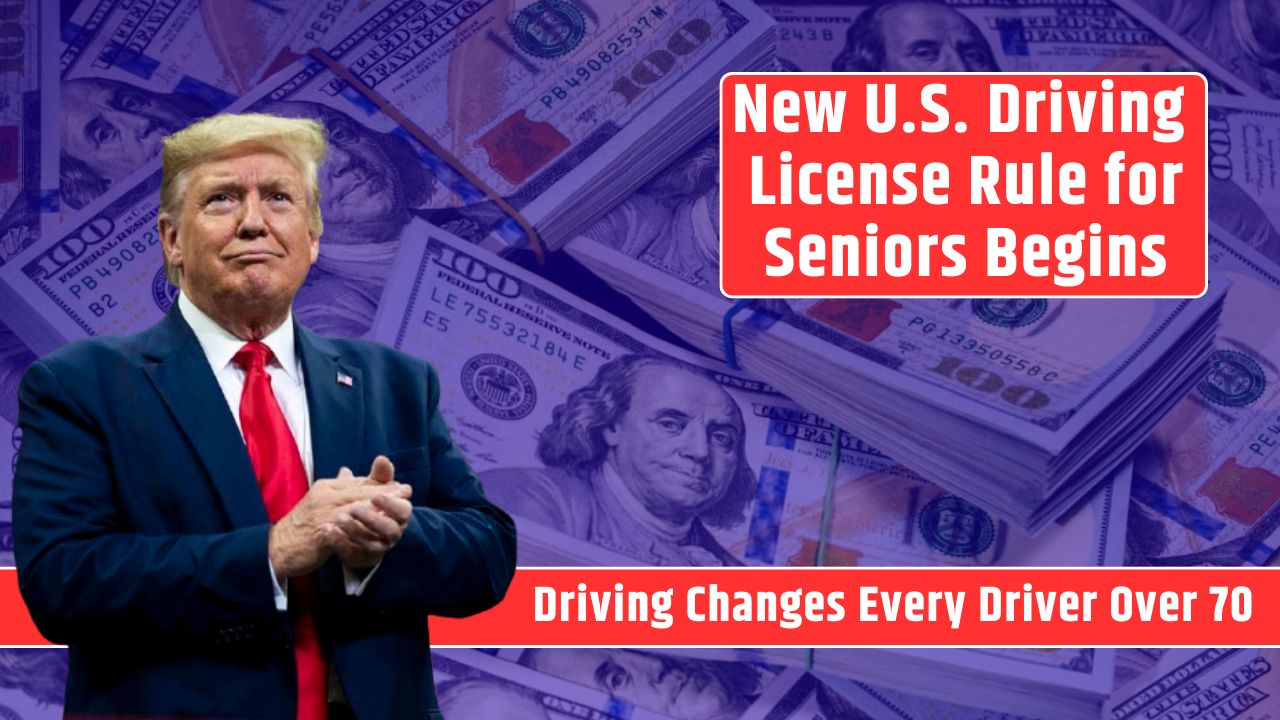If you’ve seen October headlines warning that seniors in Canada will “lose their licenses,” it’s easy to understand the panic. Coffee shop chatter, Facebook threads, and even some local radio shows have latched onto the story. But here’s the truth: no one is banning seniors from driving come October 2025. What’s actually happening is the phased rollout of new senior driver assessment rules — updates that provinces and territories, not Ottawa, are in charge of.
What’s Happening in October 2025
Starting this fall, provinces are continuing the staggered introduction of updated requirements for drivers aged 70 and older. Some regions began pilot programs in August, and by October 2025, more provinces will bring in the framework. It’s not a single nationwide deadline, but rather a phased adoption meant to balance road safety with seniors’ independence.
Here’s the framework provinces are working from:
| Core Update | What It Means | Who Decides? |
|---|---|---|
| Mandatory medical exams at 70+ | Doctors assess vision, reflexes, cognitive health | Province-by-province |
| Possible follow-up road tests | Only triggered if medical exam raises red flags | Provincial licensing authority |
| License restrictions | Limited to daylight driving or shorter distances, instead of full suspension | Province-specific |
| Standardized evaluation | Aligning criteria across provinces for more consistency | Coordinated provincially (not federal) |
So no, there’s no federal “law” that kicks in this month. Instead, you’ll see provincial licensing offices introducing changes step by step.
Why This Is Happening Now
The number of older drivers in Canada has hit record levels. According to Statistics Canada, drivers over 70 are the fastest-growing demographic behind the wheel. Most are safe and experienced, but data shows that with age comes a higher risk of crashes linked to slower reaction times, weaker vision, or early cognitive decline.
The updated rules aim to catch risks early — not punish drivers for their age. Think of it like a tune-up for your driving skills: ensuring seniors who remain on the road are both confident and capable.
Will Seniors Automatically Lose Their Licenses?
The short answer: no. A 72-year-old who passes a medical and vision exam will keep their license as usual. Restrictions or follow-ups only come if assessments reveal concerns.
For example:
- Someone struggling with night vision may be restricted to daytime-only driving.
- If medical results flag slowed reflexes, the licensing office might order a road test.
- In cases of serious decline, licenses could be suspended — but only after due process.
The intent is to adapt driving privileges, not strip them away overnight.
The Cost Question
This is where things get murkier. Medical exams and follow-up assessments aren’t always free. Some provinces cover them under public healthcare, while others leave seniors footing the bill. The Canadian Medical Association has pushed for national consistency, warning that fixed-income seniors shouldn’t face unequal costs depending on where they live.
As of October 2025, funding remains patchy. Seniors are advised to check their province’s driver licensing authority to confirm what’s covered.
Is It Age Discrimination?
The Canadian Human Rights Act bans age discrimination — unless there’s a valid safety reason. Provinces argue that medical science backs these changes, making them about ability, not age. Still, some legal experts predict court challenges, especially if drivers feel unfairly targeted or face financial barriers.
What Provinces Are Doing to Help
To soften the impact, many provinces are pairing the licensing changes with mobility support programs:
- Expanded public transit discounts for seniors
- Subsidized ride-share or taxi vouchers
- Volunteer driver networks for medical appointments and grocery runs
The message: losing or limiting a license doesn’t have to mean losing independence.
How Seniors Can Prepare
If you’re approaching 70, now’s the time to get ahead of the changes:
- Book eye exams regularly — vision loss can creep up unnoticed.
- Stay physically active — agility directly supports safe reaction times.
- Keep driving often — skills fade if you’re off the road too long.
- Take a refresher course — defensive driving classes boost confidence and may even lower insurance premiums.
Being proactive could make license renewals smoother — and extend safe driving years well past 70.
FAQs:
Do all drivers over 70 need a medical exam?
Yes, medical exams become mandatory at age 70, but follow-up road tests only happen if needed.
Will seniors automatically lose their licenses?
No. Restrictions or suspensions only happen if exams flag safety concerns.






















